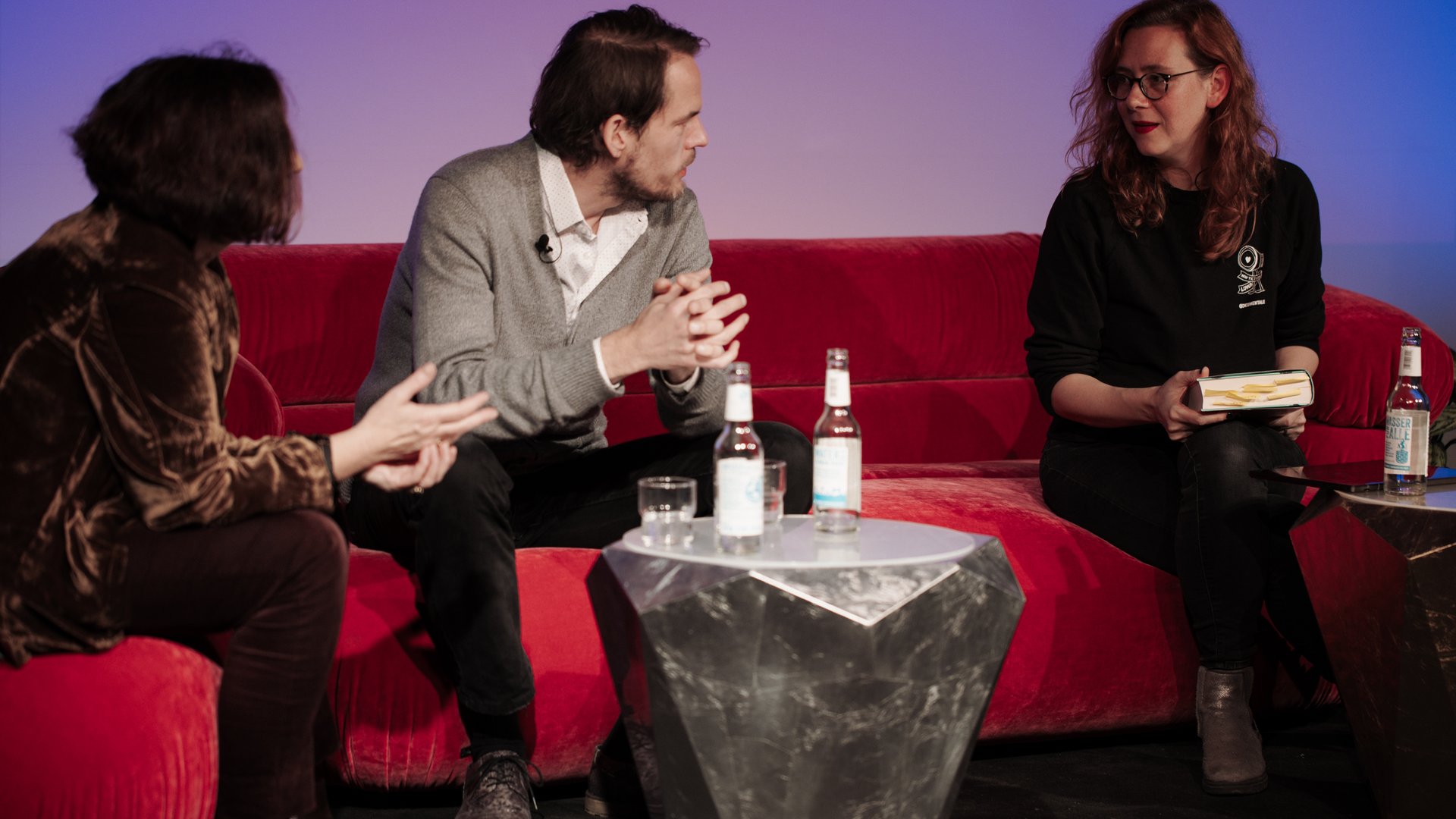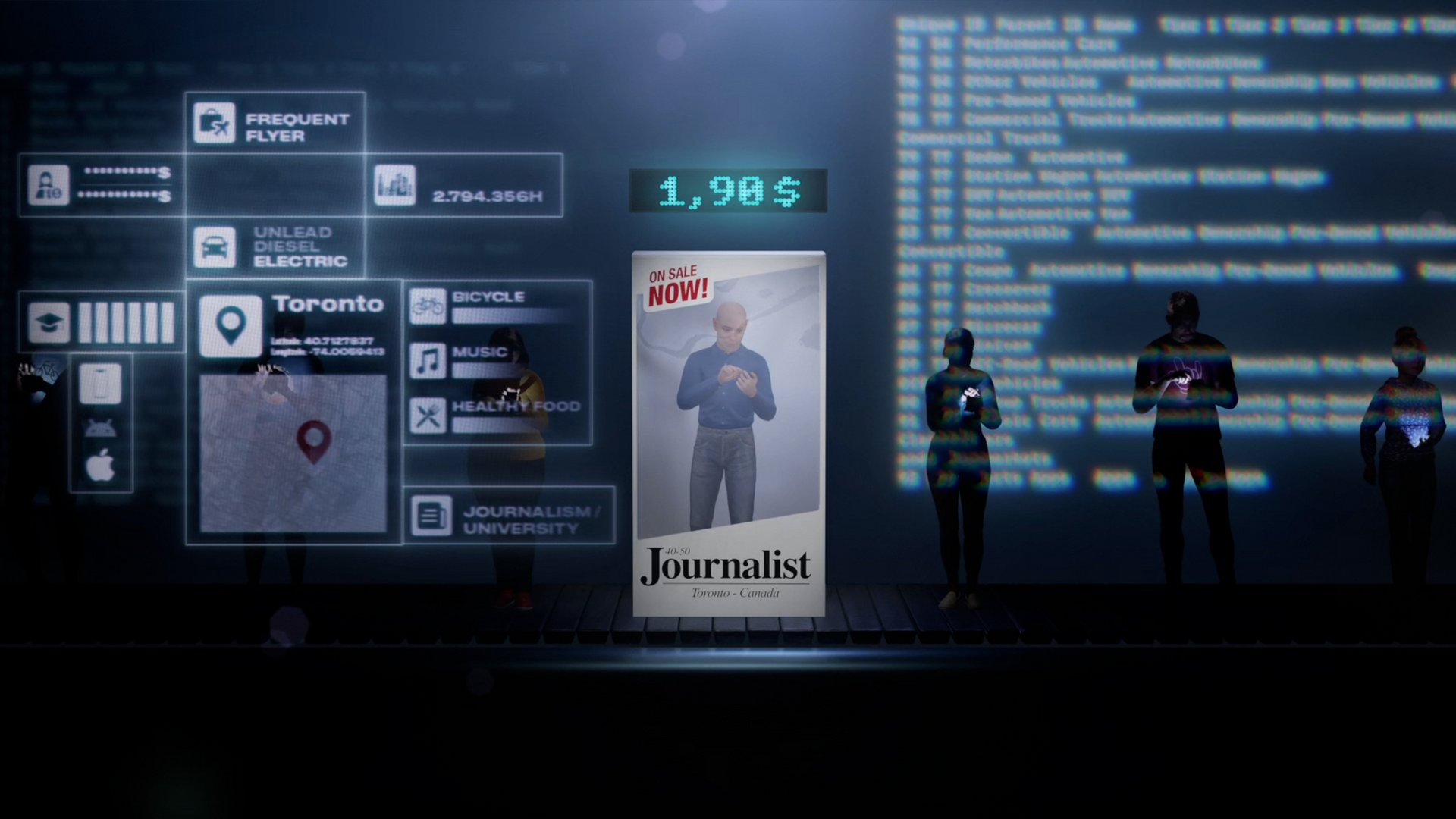
© Dovile Sermokas

© Dovile Sermokas
Another day at Dokumentale is over. Let us have a look back at some highlights!
"You will find that jazz music, the civil rights movement in the US, and the decolonization of the Congo are all connected — so you should definitely watch 'Soundtrack to a Coup d'Etat,'” says Rémi Grellety, one of the producers of the documentary. Last night, the large hall of the Colosseum was nearly sold out, and as usual, the audience had many questions for the producer after the screening — for instance, how the film team obtained the materials and what challenges they faced along the way. Even after the official Q&A, the audience stayed in the hall, eager to meet the producer, Rémi Grellety, in person. The documentary explores the assassination of Patrice Lumumba, the first democratically elected prime minister of the Congo. The film delves into the intersection of jazz music, geopolitics, and colonial power during the Cold War. If you missed the screening at Dokumentale, you still have until the end of the month to watch the film online. Here’s the link to get your tickets
At the festival center yesterday, we had the chance to meet Arno Lücker, author of “250 Komponistinnen” (250 Female Composers). Since women have been made invisible in historical narratives, we know almost nothing about many of the 250 women composers he researched for his book. Yet they existed, and they were no less talented than their male counterparts. At the festival center yesterday, the author was a guest at the 'Reclaiming the Narrative' event. Based on Lücker’s book “250 Komponistinnen”, we discussed how we can rewrite history to give proper recognition to women’s achievements. Barbara Visser’s film “Alreadymade”, which explores the possibility that Duchamp's famous “The Fountain” may actually have been created by a woman, rounded off the event perfectly. Book meets film — and the combination was a wonderful success!
After “Immortals”, a film about the protests that erupted in Iraq in October 2019, there was also a Q&A session. The protagonist, Milo, came to Berlin to talk about her experiences. She had disguised herself as a boy during the protests and is part of a generation that grew up in war and is now loudly demanding freedom. She spoke about the power of collective protest and explained what it ignited in her: “I saw all these people fighting for the same thing that I was fighting for. And I always thought I was alone.” If you missed this truly remarkable film, you can still watch it online until the end of the month. Here’s the link to get your tickets



Today marks the start of the festival’s final weekend, and there’s another great lineup of events waiting for you. Here are today’s highlights:
Play*Critique
In *Play*Critique*, Thomas Spies, Seyda Kurt, and Holger Pötzsch explore how video games not only offer entertainment but also convey social and political messages. The contributions cover a wide range of topics: from the portrayal of gender roles and diversity to the impact of algorithms and gamification. The book challenges us to see video games not just as passive consumer goods but as active shapers of our digital culture.
October 19, 6:30 p.m., Festival Center
Series Event at the Documentation Center: Draw for Change
A documentary series about female cartoonists from around the world who challenge the taboos of their societies. Through their art, they fight for freedom of expression, feminism, and justice. For them, their drawings are more than moving stories — they show the realities these women experience every day. In their struggle to transform societies, some are forced to flee and risk their lives. The six-part documentary series takes us on a journey into the world of these courageous women.
Pick the episode(s) you want to watch, or enjoy the whole series in one sitting. The first episode starts at 3 p.m.
October 19, 3 p.m., Documentation Center
Free Party: A Folk History
Director Aaron Trinder takes us back to the rise of the Free Party movement in England during the 1980s and 1990s. Far from commercialization and official venues, the movement organized wild outdoor parties. They fought for the right to party whenever, wherever, and however they wanted, often becoming a target for the police. In a time before digital surveillance, they managed to organize Castlemorton, the largest illegal festival in England. The movement went on to inspire people worldwide, not only to throw parties but also to stage protests.